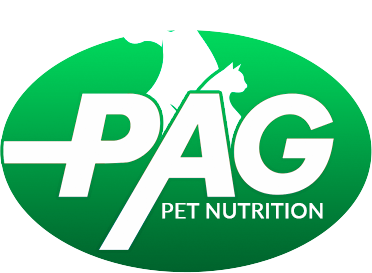
08 May Market Insights The Growing Demand for Dog Allergy Supplements in the Pet Care Industry
As pet parents become increasingly vigilant about their furry friends’ health, one area of concern that has seen a marked increase in attention is the management of dog allergies. With the seasons changing, and dogs being exposed to various potential allergens in food, the environment, and even within their own homes, the demand for dog allergy supplements has surged in the pet care industry. This article delves into the reasons behind this trend, the benefits of such supplements, and offers guidance on choosing the right products to support canine well-being.
Understanding Dog Allergies
Allergies in dogs manifest differently than in humans. While people might sneeze or suffer from watery eyes, dogs often experience skin-related issues such as itchiness, redness, and discomfort. The triggers for these allergies can range from environmental factors like pollen and dust to food ingredients and even fleas. As creatures that cannot naturally produce all the vitamins and minerals they need, dogs rely on their diet to support their immune system and mitigate allergic reactions.
The Role of Diet in Managing Dog Allergies
A cornerstone of managing dog allergies is ensuring they receive a balanced diet. Dr. Gary Richter, an award-winning vet, emphasizes that commercial dog food formulated as “complete and balanced” typically provides all the necessary vitamins and minerals a dog needs. However, dogs on homemade diets or those with specific sensitivities might require additional support through supplements.
Market Trends: The Surge in Dog Allergy Supplements
The pet care industry has noted a significant uptick in the demand for dog allergy supplements. This surge is attributed to increased awareness among pet owners about the options available to manage allergies, alongside a growing trust in veterinary science and nutritional supplements’ efficacy. With more dogs showing signs of allergic reactions and pet parents seeking solutions, the market for allergy supplements has expanded rapidly.

Choosing the Right Allergy Supplements for Dogs Seasonal Allergies
When selecting allergy supplements, the paramount concern should be quality and safety. Dr. Richter suggests looking for products that have undergone clinical trials and come from brands with a strong reputation for reliability. Reading labels is crucial to ensure the supplement is safe and effective for canine consumption. Moreover, the best course of action is to consult with a veterinarian, as they can offer personalized advice based on the dog’s health history and specific needs.
FAQs
What herbal supplements can I give my dog for allergies ?
Several herbal supplements are considered safe and beneficial for dogs with allergies.
Citrus aurantium (Bitter Orange): Contains powerful healing molecules known as Bioflavonoids.
Echinacea: Helps your pet to become less susceptible to illnesses.
Siberian Ginseng: Recognized as an adaptogen, it is widely utilized in supplements for human athletes.
Sutherlandia: Has been traditionally used to treat a wide array of health conditions.
Do dog allergy chews really work ?
Allergy chews, designed to be a convenient way to administer supplements, can be effective for some dogs. These products often contain a blend of vitamins, minerals, and herbal extracts aimed at supporting the immune system and reducing allergic symptoms. The effectiveness of allergy chews can vary depending on the dog’s specific allergies and the product’s quality, making it essential to choose chews based on veterinary advice and reputable brands.
The B2B Wholesale Market for Pet Healthy Immune System
The B2B Wholesale Market for Pet Health Products has experienced a significant transformation, driven largely by the rising demand for dog allergy supplements. As pet owners become more informed and conscientious about the health and well-being of their furry companions, the demand for specialized health products, particularly those addressing allergies, has surged. This shift has prompted retailers and wholesalers alike to prioritize the procurement of high-quality, effective supplements to cater to this growing segment of the pet care market.
In this evolving landscape, the quest for high-quality supplements extends beyond merely satisfying consumer demand. It encompasses a commitment to enhancing pet health and ensuring the longevity and quality of life for dogs suffering from allergies. Retailers and wholesalers are, therefore, increasingly vigilant in their selection of products, seeking out those backed by scientific research, clinical trials, and positive consumer testimonials. This meticulous approach is aimed at not just filling shelves, but ensuring that the products offered make a tangible difference in the lives of pets and their owners.
However, navigating the B2B wholesale market for pet health products is not without its challenges. One of the foremost obstacles is maintaining consistent product quality. With the proliferation of suppliers and manufacturers, retailers and wholesalers must conduct thorough due diligence to ensure that the products they source meet stringent quality standards. This often involves a rigorous vetting process, including visits to manufacturing facilities, verification of ingredient sources, and evaluation of production processes.

Moreover, the regulatory landscape for pet health products can be complex and varied across different jurisdictions. Staying abreast of and complying with these regulatory standards is crucial for businesses operating in this space. It requires a proactive approach to regulatory compliance, including keeping up-to-date with changes in legislation, understanding the nuances of product labeling requirements, and ensuring that all products meet safety and efficacy standards.
Despite these challenges, the opportunities within the B2B wholesale market for pet health products, particularly those catering to allergies, are vast. The growing awareness among pet owners about the availability and benefits of such products is opening up new avenues for growth. Businesses that can effectively navigate the complexities of product sourcing and regulatory compliance stand to make a significant impact on pet health. They not only contribute to the well-being of pets but also position themselves as trusted partners in the pet care ecosystem.
In conclusion, the B2B wholesale market for pet health products is at a pivotal juncture, with dog allergy supplements driving a significant portion of market demand. The challenges of maintaining product quality and navigating regulatory standards are substantial, but so are the opportunities for growth and the potential to positively impact pet health. For retailers and wholesalers, success in this dynamic market hinges on their ability to source high-quality products, comply with regulatory requirements, and meet the evolving needs of pet owners and their pets.
Gut Health Vs Allergy Immune Health
In an era where pet wellness is garnering significant attention, understanding and addressing the common yet distressing issue of itchy skin in dogs has become a priority for pet parents. Itchy skin not only affects the overall skin health of our furry friends but can also lead to more severe health issues if not treated properly. This concern leads us directly into the importance of maintaining not just external health, but internal wellness too, notably gut health.
A robust gut health plays a crucial role in managing a dog’s normal histamine response. This is vital because an abnormal histamine response can exacerbate allergy symptoms, making a pet’s life miserable. Therefore, allergy support for pets, especially those that are pregnant animals or animals intended for breeding, should be approached with a holistic mindset, focusing on maintaining normal histamine levels to ensure their well-being.
Other Supplements that Give Dog’s Body Allergy Support
One of the most praised natural supplements in the pet care market for enhancing skin and coat health is wild Alaskan salmon oil. Rich in omega-3 fatty acids, this supplement supports not only skin health but also promotes a healthy immune response, crucial for animals with sensitivities.
In addition to omega-rich supplements, incorporating ingredients like apple cider vinegar into a pet’s diet can also support skin health. Apple cider vinegar, known for its antibacterial and antifungal properties, can be a part of a dietary approach to manage allergy symptoms and maintain skin health.

For comprehensive allergy support, it’s essential to consider supplements that can help maintain normal histamine levels. Products designed as soft chews often include active ingredients beneficial for this purpose, such as quercetin, which supports the immune health of pets and helps manage their histamine response. The convenience of soft chews also ensures easy administration, encouraging regular use and thus, consistent support for managing allergies.
The immune response of a pet is integral to how effectively it can deal with allergies. Supplements that bolster the immune health, especially those that contain natural ingredients, play a vital role in ensuring pets can lead a comfortable life, free from the distress of itchy skin and other allergy symptoms.
It’s worth noting that pregnant animals or animals intended for breeding require special consideration when it comes to supplements. Not all products are suitable for these sensitive groups, and it’s crucial to choose supplements that specifically state their safety for pregnant or breeding animals.
In conclusion, tackling itchy skin and promoting overall health in pets requires a multifaceted approach. From ensuring gut health to maintaining normal histamine levels, each aspect plays a crucial role in allergy support. Incorporating natural supplements like wild Alaskan salmon oil and apple cider vinegar, along with specially formulated soft chews, can provide comprehensive support. Always consult with a veterinarian to determine the best course of action, especially for pregnant animals or those intended for breeding, to ensure safe and effective allergy management.
Conclusion
The rise in demand for dog allergy supplements is a testament to the growing awareness and concern for pet health among pet owners and the pet care industry. While a balanced diet is foundational, supplements can play a crucial role in managing allergies, provided they are chosen with care and used under veterinary guidance. As the market continues to evolve, the focus remains on supporting the health and happiness of our canine companions through informed choices and quality care.

